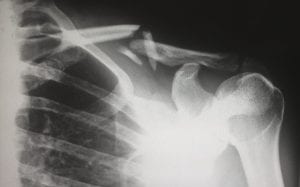As far as the trucking company is concerned, it can be accused of breach of duty if, for instance, it turns out they did not replace the truck’s tires to cut costs.
Rock Hill, SC – In 2020, South Carolina ranked 6 for the states with the most truck accidents. That’s an improvement from 2018 when it was in the third position, but for residents, the risks of being in a truck accident are still very high. In 2020, for instance, 65 people were killed and thousands were injured in collisions involving large trucks.
While ordinary people call them truck accidents, lawyers practicing in this area of the law do everything they can to prove they were not simple accidents but were caused by negligence. The difference is very subtle, but vital when it comes to filing a personal injury claim. A simple accident is an event no one expected and no one could have predicted, therefore no one is responsible. However, if someone was negligent and this led to an accident, they can be held accountable for what they did.
To prove negligence and recover damages, you will need assistance from skilled Rock Hill truck accident lawyers.
How is negligence proven in a truck accident?
Here are the four elements needed to prove a case of negligence:
Duty of care
The first step is to establish that the party at fault had a duty of care. This means that the party you hold responsible had a duty to act reasonably and avoid injuring other people. Take, for instance, the trucker. Like any other driver, a trucker must drive safely and respect road signs. In a truck accident, you can have more than one party who is liable for damages. A trucking company is required by federal law to maintain its vehicles in good condition. This means providing regular maintenance, repairing or replacing worn-out or broken parts, etc. If the maintenance part is transferred to a third party, the duty of care is also transferred to that company.
Breach of duty
Your South Carolina truck accident lawyers will have to show in what way the party at fault failed in their duty of care. If the trucker was texting (which is strictly forbidden), that’s already a breach of their duty to drive safely. Speeding, reckless or aggressive driving, or being under the influence of alcohol or drugs, also constitute a breach of duty.
As far as the trucking company is concerned, it can be accused of breach of duty if, for instance, it turns out they did not replace the truck’s tires to cut costs, and this resulted in the trucker losing control of the vehicle following a tire blowout.
Causation

The next step is proving that your injuries are a direct result of the other party’s actions. In other words, you wouldn’t have been injured if the trucker hadn’t slammed into your car because he wasn’t paying attention to the road or speeding, etc. To prove this, your truck accident lawyers will need medical records showing you sought medical attention right after the accident. Many accident victims make the mistake of delaying seeing a doctor. If you wait too much, the insurance adjuster reviewing your case may claim your injuries have nothing to do with the accident. They often do this to try to minimize the value of your claim or deny it altogether.
Damages
To seek compensation, you have to show what damages you sustained because of your injury. You can recover economic damages, which include medical expenses, costs to repair or replace your car, and lost wages. Also, you can ask for non-economic damages, which are meant to compensate you for your pain and suffering, both physical and mental. Your lawyers will help you put a value on your suffering, depending on the severity of your injuries, how long it took you to heal, or how they will affect you in the future (if you are left with a disfigurement or disability).


Join the conversation!